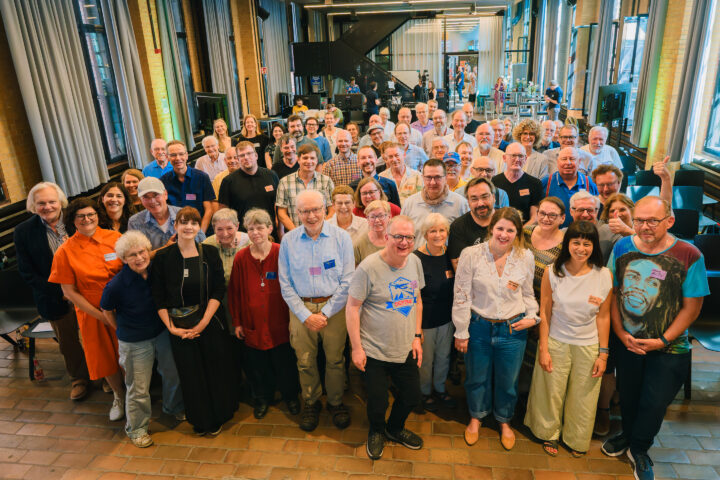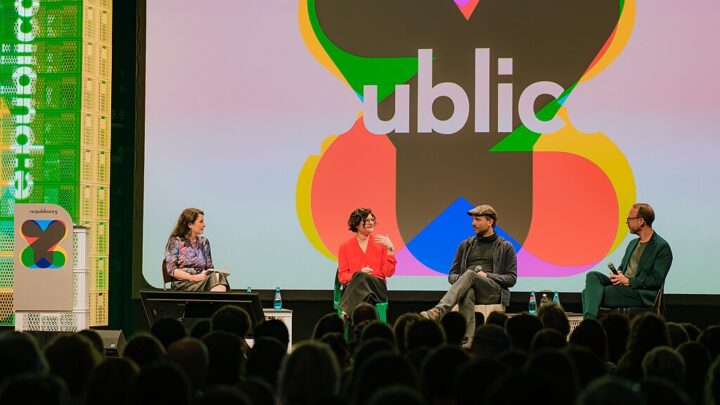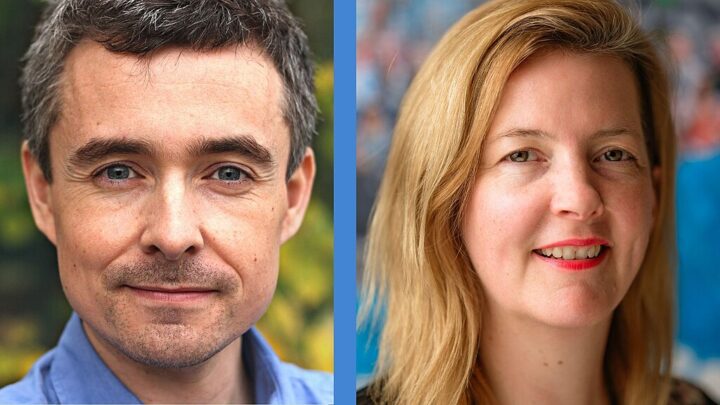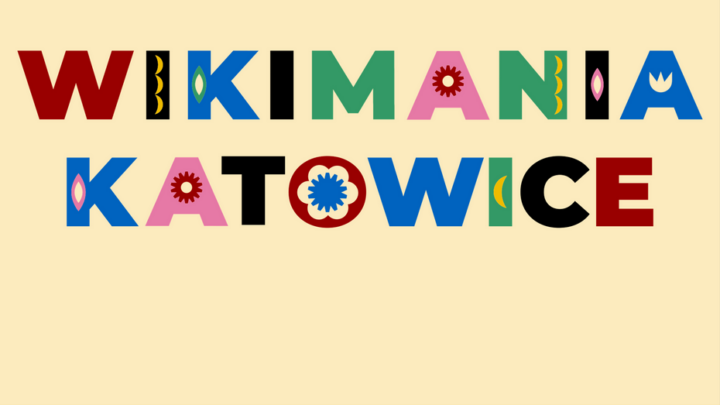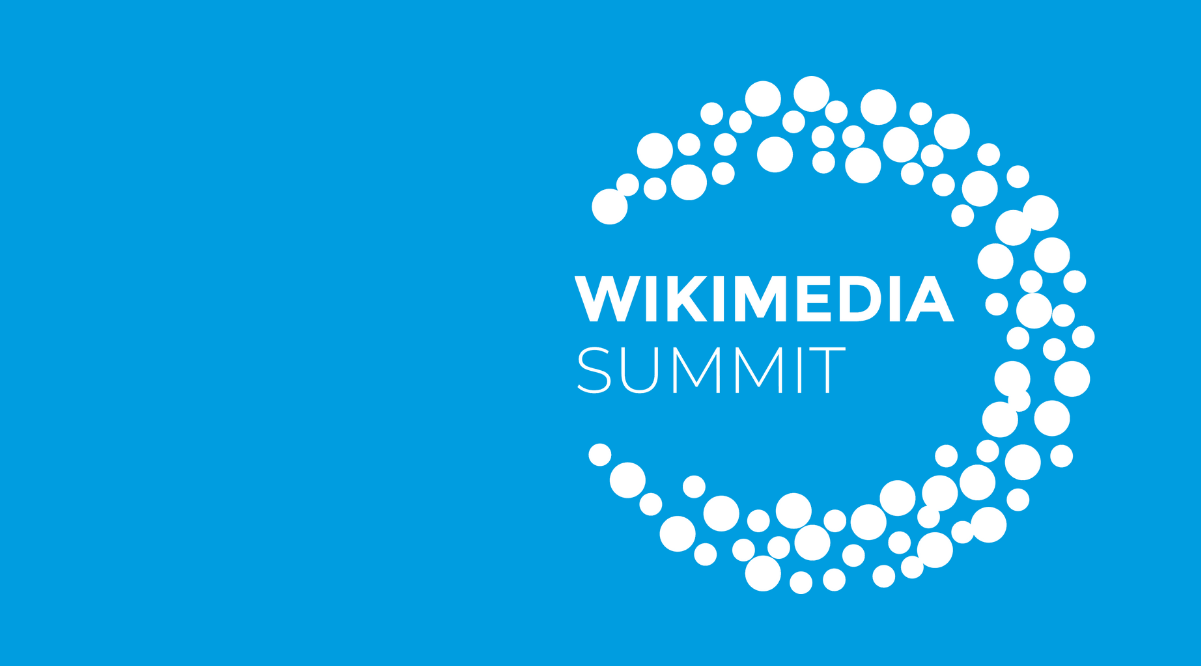
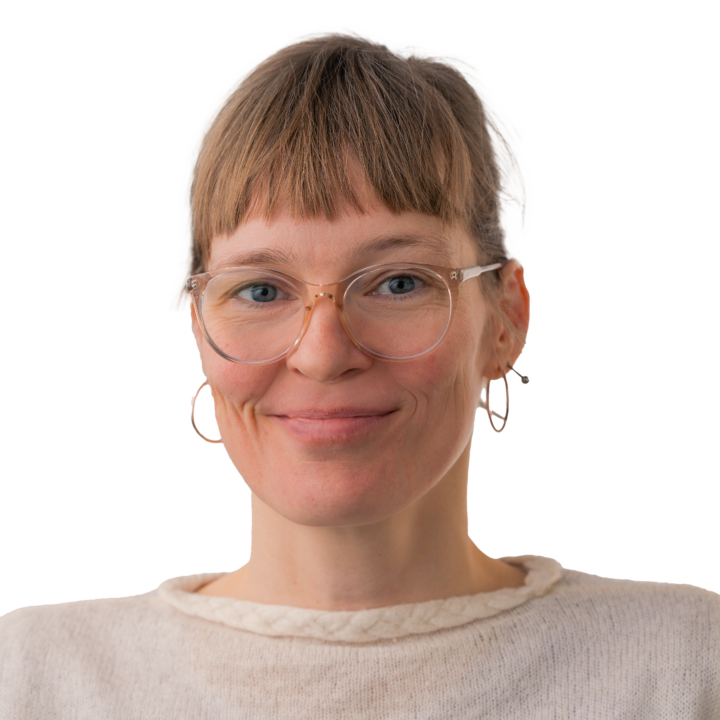
Julia Gebert
26. September 2022
Da die Interviews auf Englisch geführt wurden, im Folgenden die Originaltexte.
We’ve talked to some of the participants of this years‘ Wikimedia Summit that took place in Berlin from September 9-11. See for yourself, what kind of vision everyone has for the future of the Wikimedia Movement, what their favorite Wikipedia-page is and which wiki-project they are most passionate about.
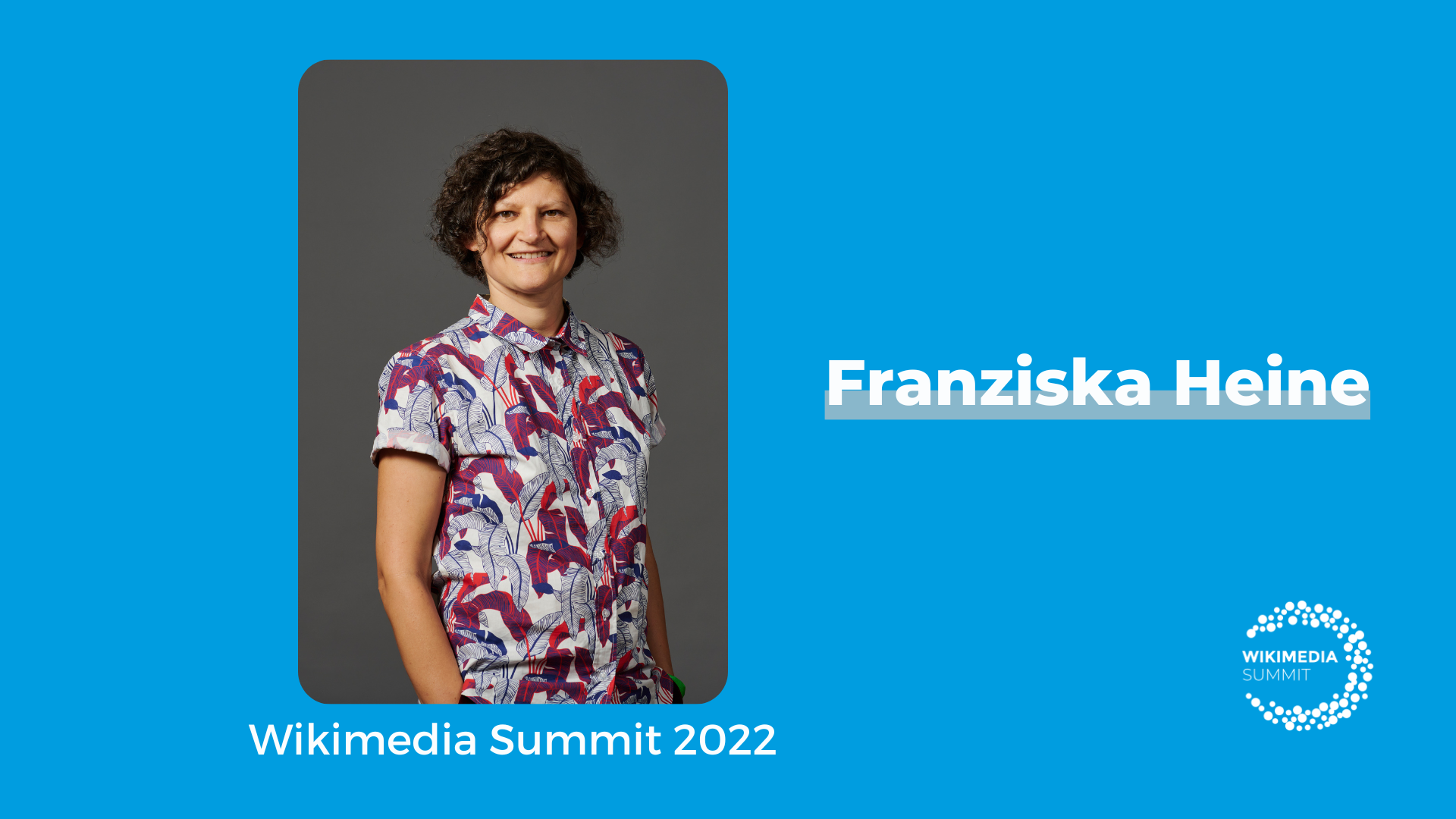
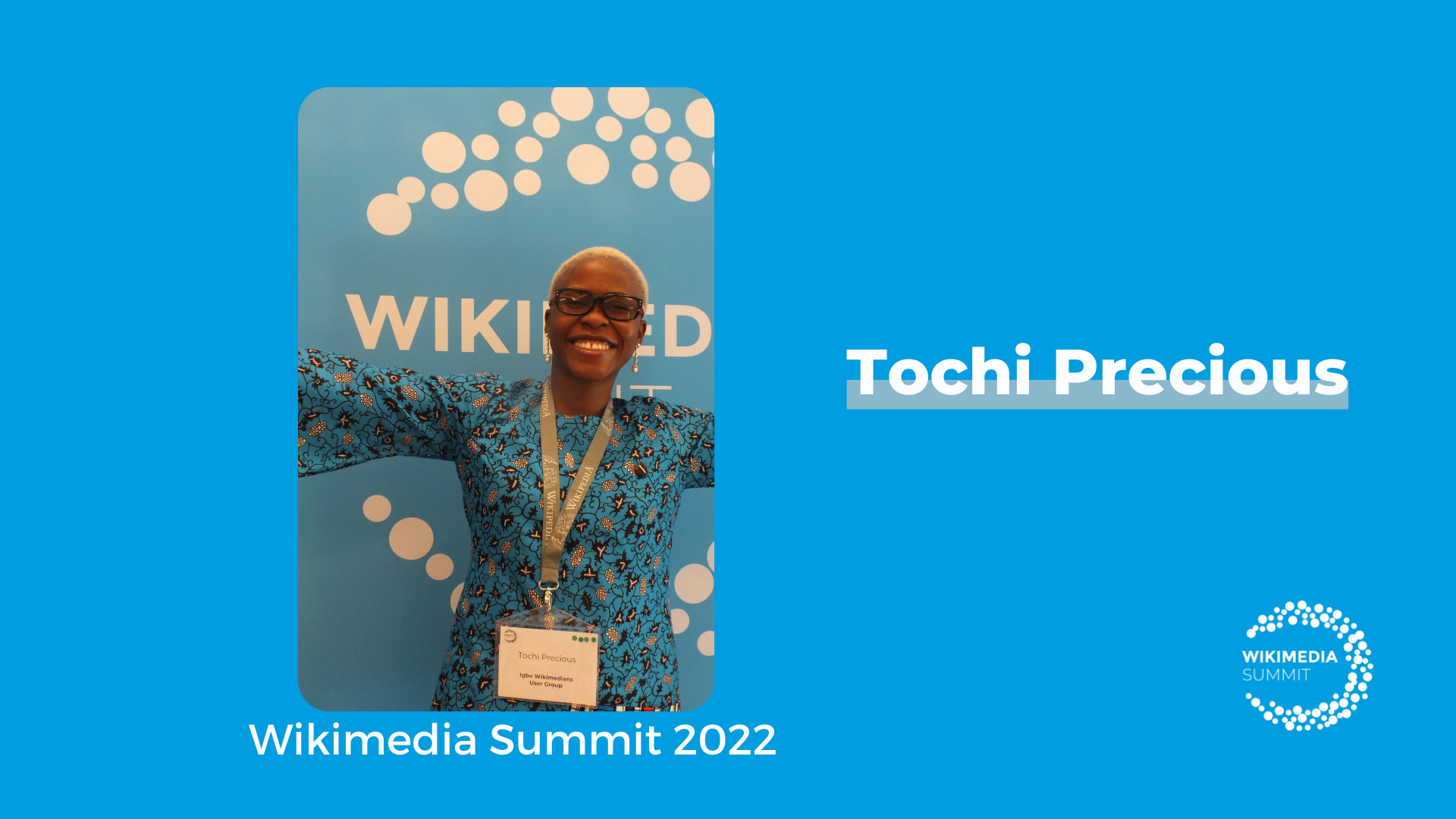
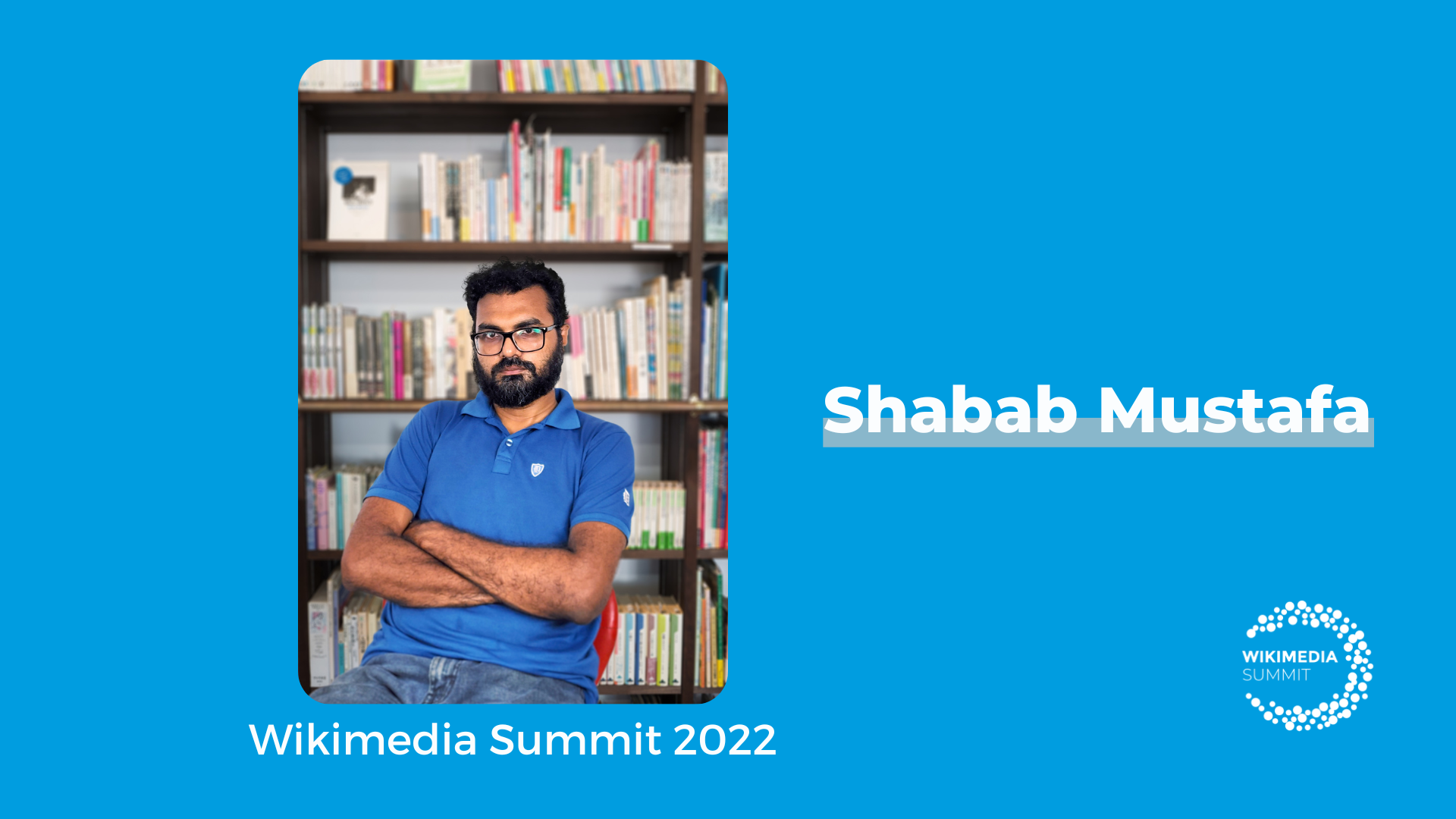
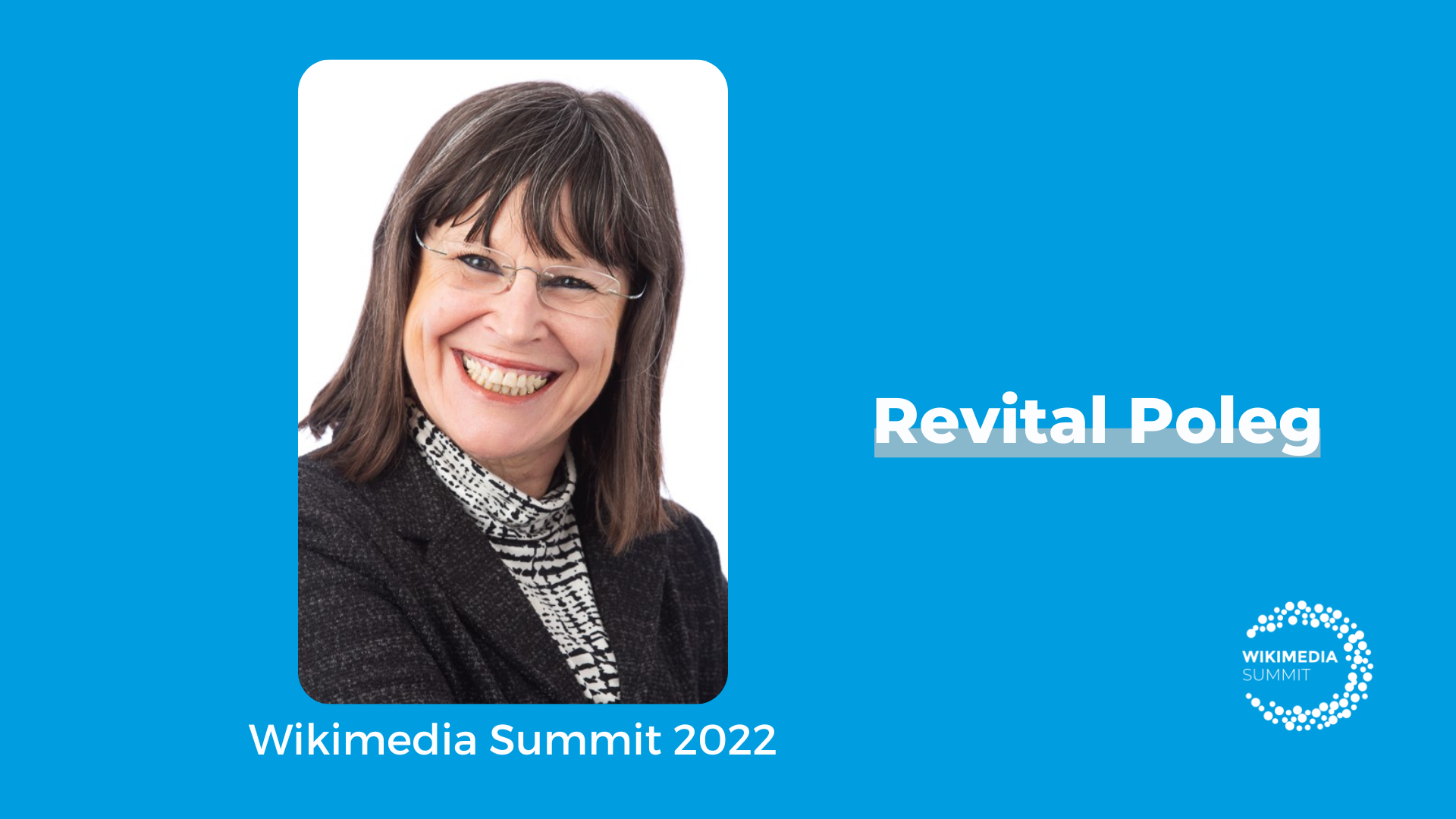

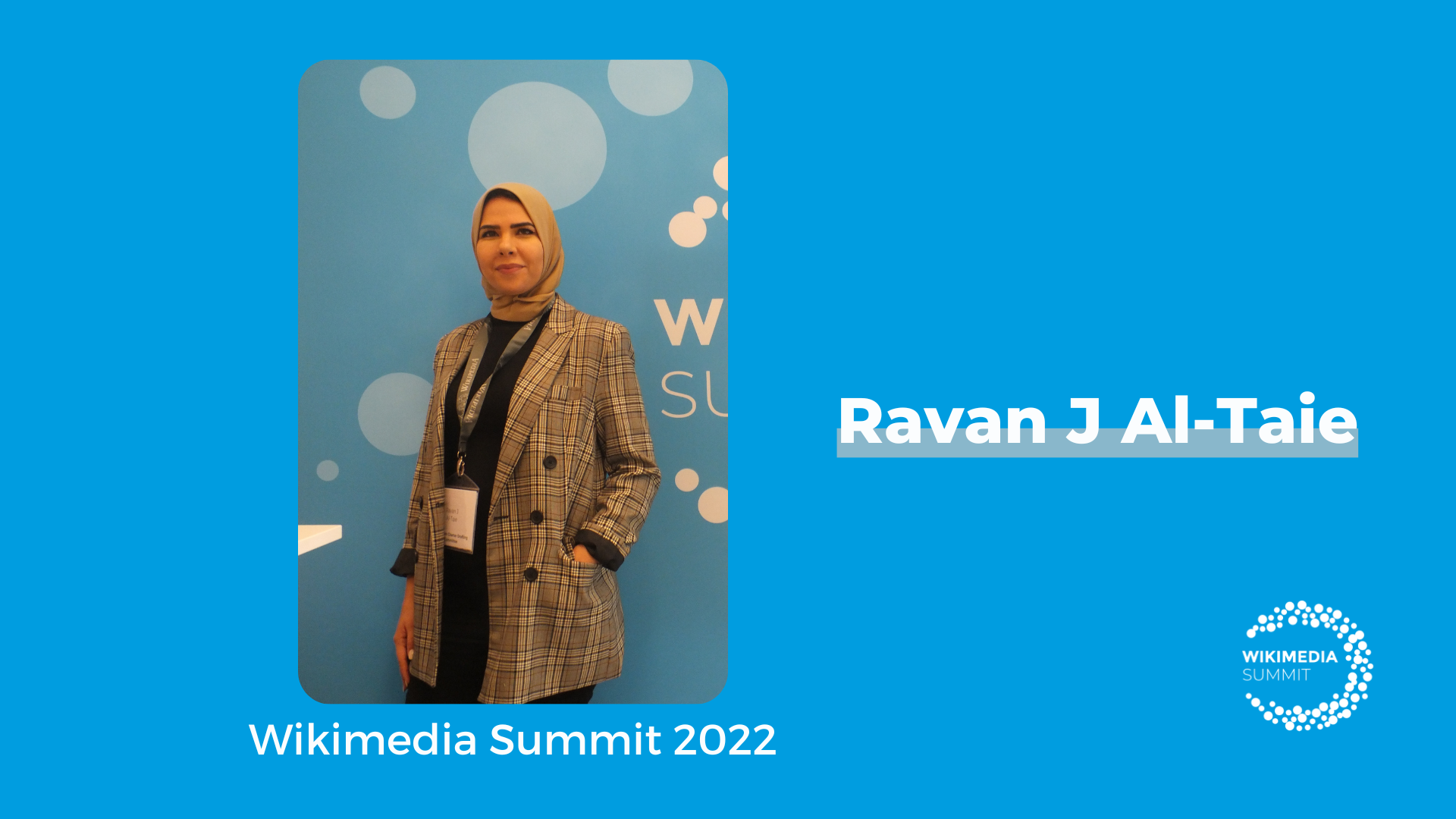
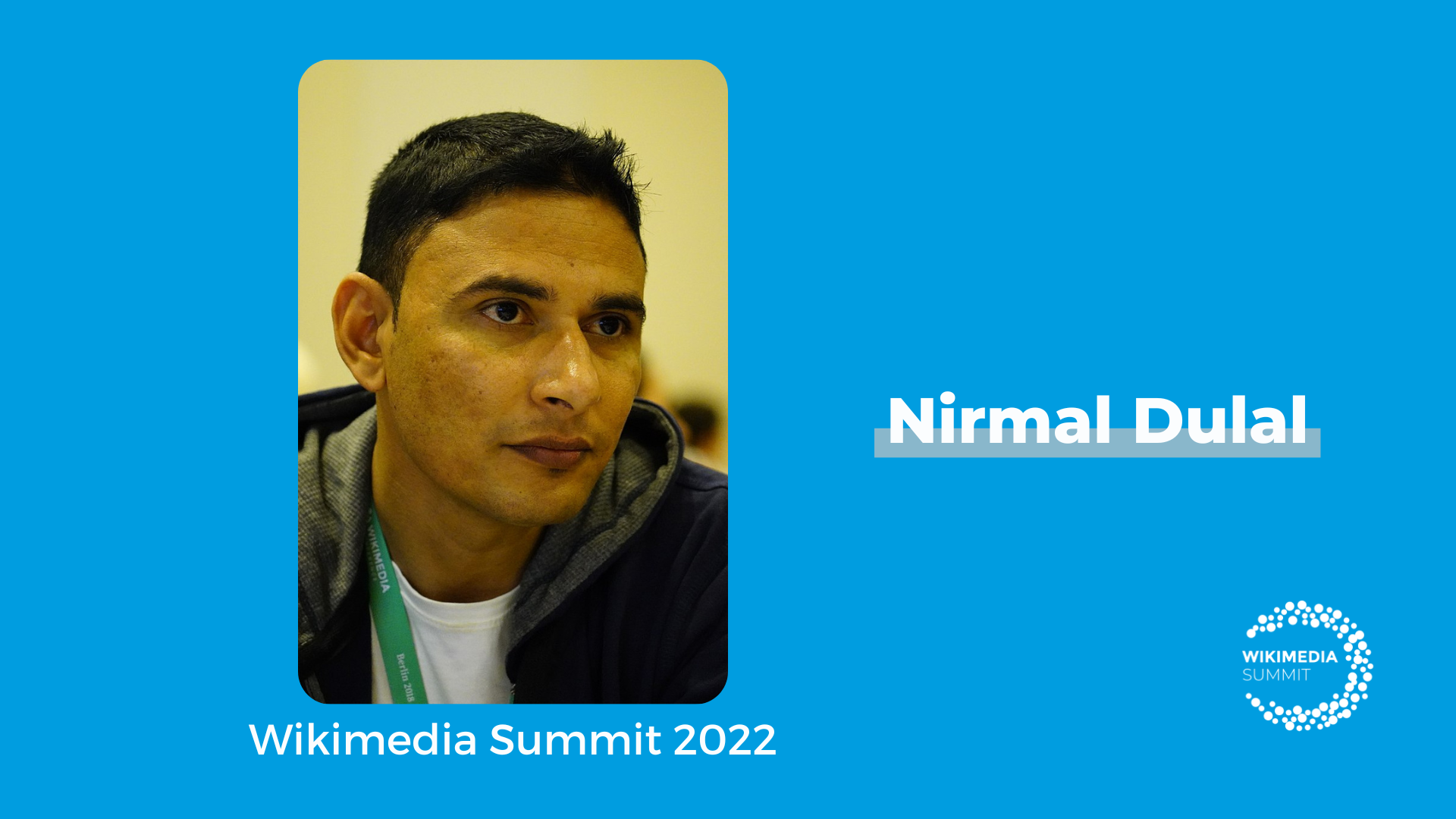
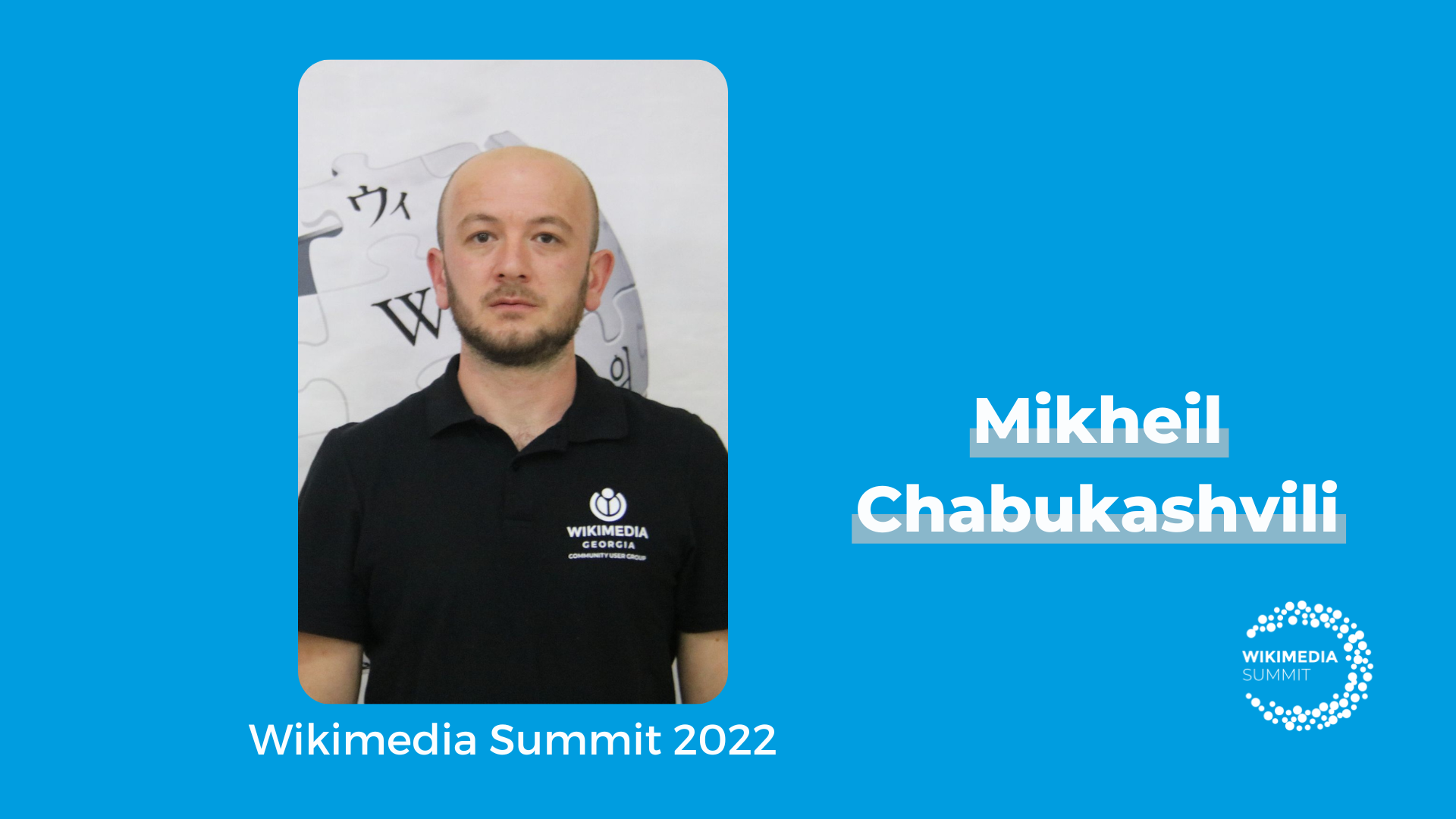
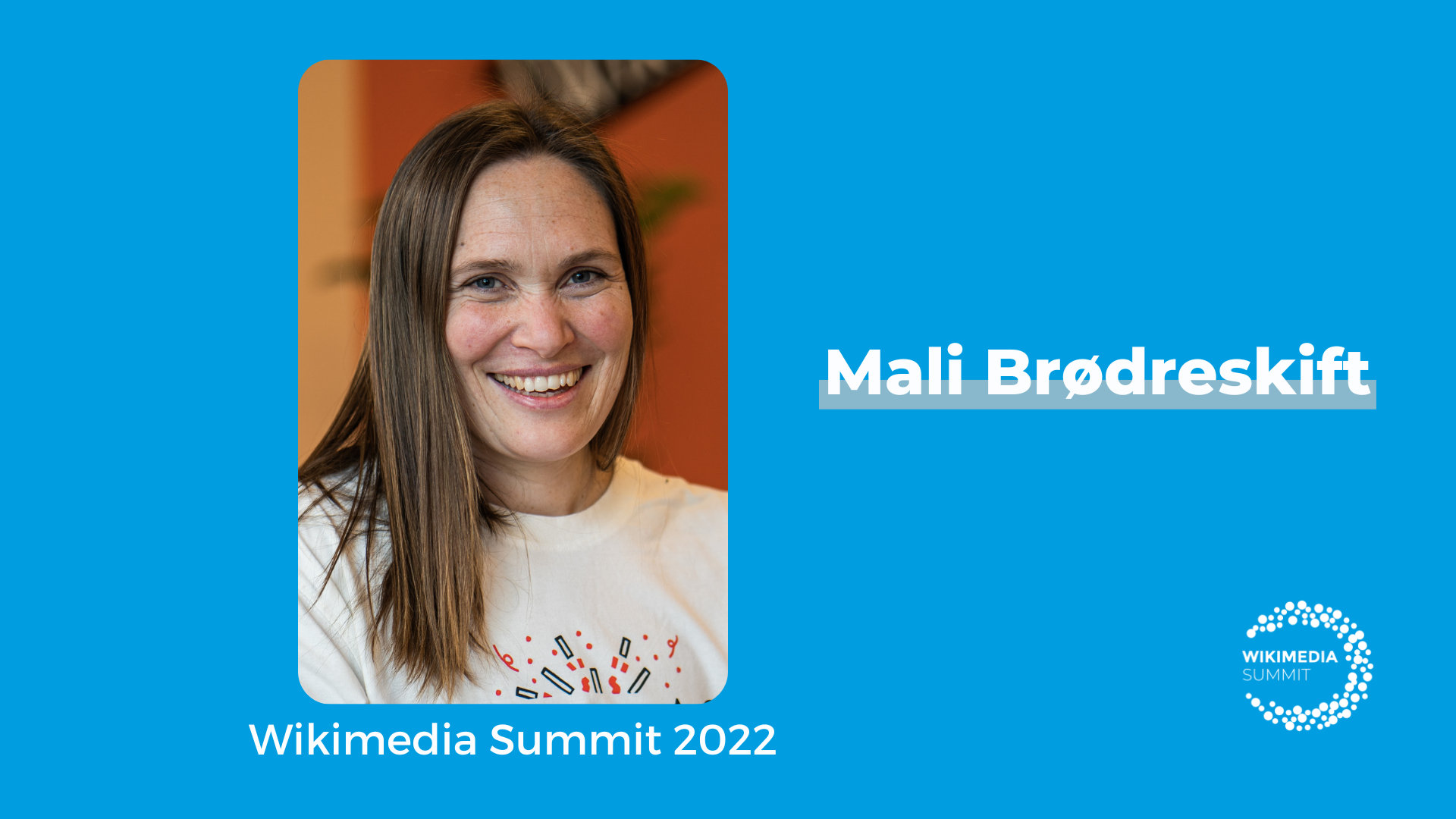
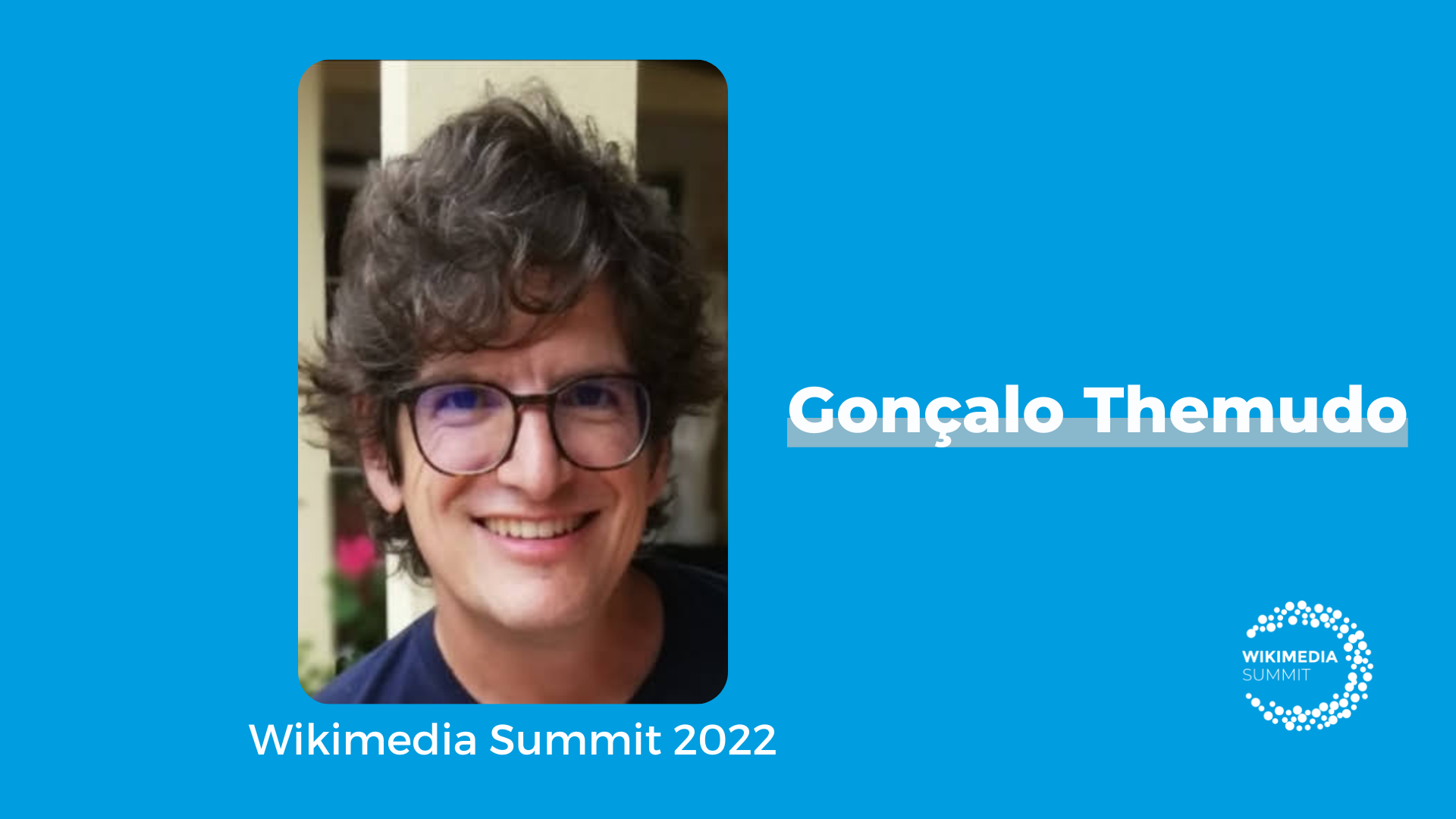
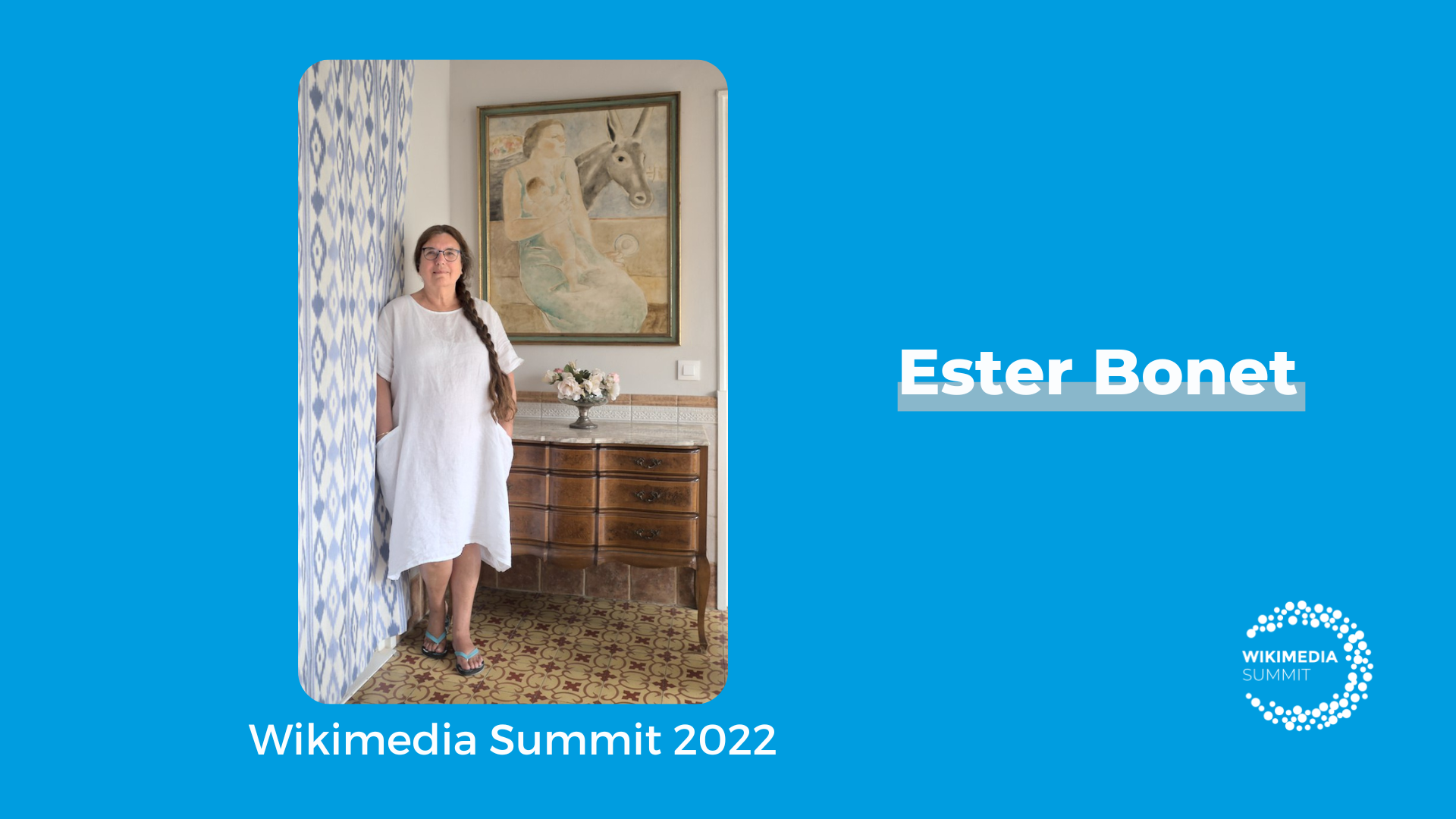
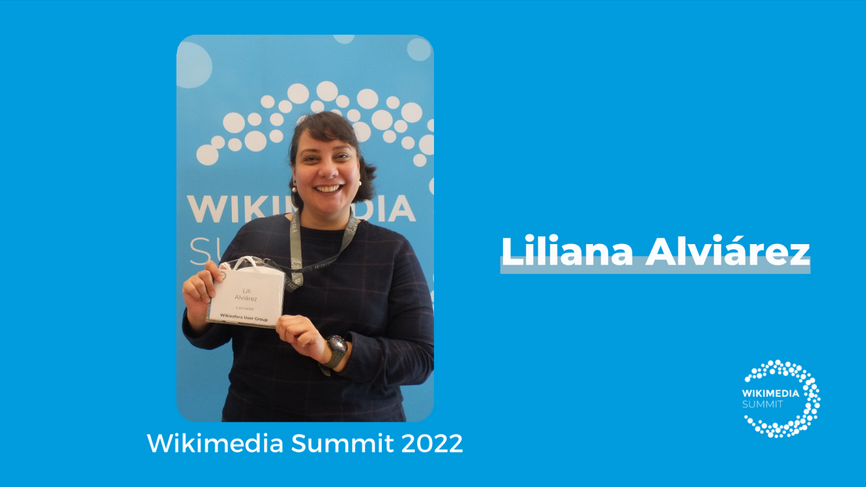
3 questions for… Franziska Heine
1. What is your work at the Wikimedia Movement and what is your vision for the future for it?
Within the Wikimedia Movement I am someone who tries to highlight the software side of the things we do. What it means for our communities and how to build it in a way so it will be relevant for the next 20 years and beyond.
I envision a world in which it is easy to connect different well maintained knowledge bases that allow everyone of us to constantly learn new things and help us to solve the big problems we all will be facing during the next decades.
2. A Wikipedia-page that we should all click and read through – what’s your personal recommendation?
Absolutely the Linked Open Data Strategy that the Software Department of WMDE has published 2021. It is an incredibly compelling read and I can’t wait to see it coming to life over the next couple of years!
3. Your favorite Wiki-Project and why!
I love Wikimedia Commons! It is such a treasure trove I could loose myself in for hours! But my heart will always, always beat for Wikidata <3
3 questions for Tochi Precious
1. What is your work at the Wikimedia Movement and what is your vision for the future for it?
My work in the Wikimedia Movement so far has been centered on advancing free knowledge by editor recruitment, building capacity of new and old editors, skills and programs development, editing and translation.
2. A Wikipedia-page that we should all click and read through – what’s your personal recommendation?
I would recommend the list of fallacies. It could change how you interact with people and help in controversial topics: https://en.m.wikipedia.org/wiki/List_of_fallacies
3. Your favorite Wiki-Project and why!
This is a tough decision to make but in terms of contribution, I like Wikidata because it’s easy to use but personally, I love Wikipedia because I can flex my translation muscles. Followed by Wikiquote.
3 questions for… Shabab Mustafa
1.What is your work at the Wikimedia Movement and what is your vision for the future for it?
My current work as the President of the Wikimedia Bangladesh Chapter is focused on creating and maintaining a thriving wiki community where people come together and contribute to Bangla Wiki projects. We envision having a sustainable platform where the sum of human knowledge is accessible in Bangla.
2. A Wikipedia-page that we should all click and read through – what’s your personal recommendation?
I would like to recommend to everyone to visit the article on the Bengali language (or „Bangla“ as native pronunciation) on English Wikipedia: https://en.wikipedia.org/wiki/Bengali_language
3. Your favorite Wiki-Project and why!
My favorite wiki project is Bangla Wikipedia. Since its inception in 2004, it has become the top collection of free knowledge in Bangla language.
3 questions for… Revital Poleg
1. What is your work at the Wikimedia Movement and what is your vision for the future for it?
I am the Executive Director of Wikimedia Israel, and my vision for the Wikimedia movement is that we will all work together in accordance with the strategic direction defined, to improve newcomers‘ user experience, thus ensuring ongoing future growth and diversity of our global community and enhancing engagement of any type of contributor.
2. A Wikipedia-page that we should all click and read through – what’s your personal recommendation?
I recommend the „right to education“ page (Hebrew version) that is focused on the society’s moral obligation to enable education for all and develop equal access to it (starting from basic and up to higher education). I consider this right as one of the highest fundamental values that are essential for ensuring the future of humanity, which – in my opinion – is very much related to Wikipedia’s vision of providing free access to the sum of all human knowledge to every person on the planet.
3. Your favorite Wiki-Project and why!
My favorite Wiki-Project is „Pass it forward“ (a He-WP project) designed to spread an atmosphere of mutual support and appreciation among the editors, newcomers as well as veterans. (The project name was inspired by the film carrying this title). The project aims at promoting a pleasant experience among editors, thus contributing to the expansion and diversification of the circle of editors that contribute to the He-WP.
3 questions for… Rémy Gerbet
1. What is your work at the Wikimedia Movement and what is your vision for the future for it?
I am the executive director of Wikimedia France and have been involved in the movement since 2015. I think that our new Wikimedia is facing very important changes both at the organizational level and at the structural level with very many challenges in terms of credibility, autonomy and protection of assets while imagining the future of tomorrow. The 2030 strategy is a good guide, but this cannot be done without perfect coordination and real convergence and solidarity between all the stakeholders in our movement.
2. A Wikipedia-page that we should all click and read through – what’s your personal recommendation?
There are so many that it is very difficult to choose. For the topicality of the subject, I am thinking of the article concerning planet X, a ninth planet located well beyond the known confines of the current solar system. The Wikipedia article in question relates perfectly well the progress and scientific questions around this subject with a good level of popularization which is always an important issue when you want to make a free and accessible encyclopedia.
3. Your favorite Wiki-Project and why!
Apart from Wikipedia, I would say Wiktionary for the ever-increasing quality of this content, which for me makes it a dictionary that knows how to handle scientific precision and accessibility to perfection.
3 questions for…Ravan J Al-Taie
1. What is your work at the Wikimedia Movement and what is your vision for the future for it?
I’ve been editing Wikipedia since 2008 and a former admin for 4 years, I created more than 900 new articles and more than 20,000 edits, I’ve founded the Iraqi Wikimedians user group, and organized Wiki Loves Monument 3 times for my country. I managed more than 7 workshops and edit-a-thons in several cities in Iraq, I’ve created two Wiki-Educational curriculums to teach newbies how to edit, I co-founded the Wikiwomen prize to increase the content of females in Wikipedia. Currently, I’m an active member of MCDC, drafting the Movement Charter.
I’m personally very optimistic about the future of Wikimedia Movement as everyone is working steadily and hard to create this great vision of 2030 which states that by 2030, Wikimedia will become the essential infrastructure of the ecosystem of free knowledge, and anyone who shares our vision will be able to join us.
2. A Wikipedia-page that we should all click and read through – what’s your personal recommendation?
I believe that all of us are acting like pieces of a big puzzle, we complete each other in knowledge, hobbies, interests, specialties, and taste.
But the great thing about Wikipedia is that no matter what you like in life, you’ll find it there and there is always a room of improvement that you can contribute to.
My personal favorites are: Moons of Jupiter, List of works by Leonardo da Vinci, World War II, and recently Virtual reality.
3. Your favorite Wiki-Project and why?
I do like WikiData as it has a great purpose and future, Wiki Commons is one of my favorites as well. But personally, the gem of the crown for me is Wikipedia, I contribute to it the most and I believe it has a great impact on all humanity’s free accessible knowledge.
3 questions for… Nirmal Dulal
1. What is your work at the Wikimedia Movement and what is your vision for the future for it?
I’ve been serving as a longtime contributor to Wikipedia and most of its sister projects to enhance the Wikimedia movement in the best way possible since 2010. My vision for the Wikimedia Movement is to initiate and execute mass activities in collaboration with all Wikimedia communities. An initiation where every community can relate their growth to create an open source of information in every language and culture as a global dialect.
2. A Wikipedia-page that we should all click and read through – what’s your personal recommendation?
For now, I would recommend reading Climate change.
3. Your favorite Wiki-Project and why!
Among all Sister Projects I’d choose Wikimedia Commons and Wikipedia because my wish is that every person on earth will be able to get access to free knowledge in their own language. Information along with images and illustrations are a vital part of it. On Wikipedia, I’d choose Wiki-Project Nepal, because my main objective is to create articles about missing subjects related to Nepal from a neutral point-of-view and with proper references (following Wikipedia guidelines) and improve them by expanding, maintaining, and as much as possible, adding free licensed photographs.
3 questions for… Mikheil Chabukashvili
1.What is your work at the Wikimedia Movement and what is your vision for the future for it?
I’m Project and Outreach Manager at Wikimedia Community User Group Georgia. New projects and communication with a broad audience are vital for the development of Wikimedia projects, for attracting new users and volunteers, and creating free knowledge.
2. A Wikipedia-page that we should all click and read through – what’s your personal recommendation?
3. Your favorite Wiki-Project and why!
Wikipedia is my favorite Wiki-Project. It’s all you need in the current time, where information is crucial to surviving, to progress. Moreover, Wikipedia provides the fastest access to information for everyone, for free.
3 questions for… Mali Brødreskift
1. What is your work at the Wikimedia Movement and what is your vision for the future for it?
I am project manager for diversity at WMNO, dividing my work between knowledge diversity in Norway and globally through the work with the Language Diversity Hub. The smaller, underresourced and underrepresented languages is bringing a new and very exciting energy to the movement.
2. A Wikipedia-page that we should all click and read through – what’s your personal recommendation?
I recommend everyone to check out Elsa Laula.
3. Your favorite Wiki-Project and why!
Wikidata, for the potential it has for the future, including Abstract Wikipedia and Wikifunctions!
3 questions for… Gonçalo-Themudo
1. What is your work at the Wikimedia Movement and what is your vision for the future for it?
I am a Wikipedia editor since 2006 and also serve as administrator on the Portuguese Wikipedia. I am currently president of Wikimedia Portugal, which means I do all sorts of things from organizing edit-a-thons, securing funding for our annual activities, mentoring new and prospective editors, arranging partnerships with national entities that align with the Wikimedia Movement principles and mission, among many other things. As for the future, I am hoping to see more decentralized decision making with local communities feeling empowered to fulfill the mission of creating and distributing the „sum of human knowledge“.
2. A Wikipedia-page that we should all click and read through – what’s your personal recommendation?
I would recommend one of the latest articles I started on Portuguese Wikipedia about a 3500 year old olive tree, the oldest in Portugal: https://pt.wikipedia.org/wiki/Oliveira_do_Mouch%C3%A3o It is a very short article, but I really love the idea of monumental trees.
3. Your favorite Wiki-Project and why!
Wiki-Projects on the Portuguese Wikipedia are not that active, but I still enjoy contributing to the Tree of Life project on the Portuguese Wikipedia. And of course the two Wiki-Projects I started there, the Amphibian and Reptiles Wiki-Project and the Evolutionary Biology Wiki-Project. The fact that I can cooperate with individuals of similar interests gives me a sense of belonging in a vast movement about almost everything.
3 questions for… Ester Bonet
1. What is your work at the Wikimedia Movement and what is your vision for the future for it?
I’m an activist for contributing to bridging the gender gap in Wikipedia. The voice and work of women are necessary to create the essential infrastructure of the Strategy 2030.
2. A Wikipedia-page that we should all click and read through – what’s your personal recommendation?
Àbac. It was created on 17 March 2001 in the Catalan WP and is an excellent example of collaborative knowledge. And: Bicycling and feminism. For the importance of cycling in transforming the role of women in society.
3. Your favorite Wiki-Project and why!
SheSaid because this project aims to collect women’s voices and make them visible.
3 questions for… Liliana Alviárez
1. What is your work at the Wikimedia Movement and what is your vision for the future for it?
I started editing in the Spanish Wikipedia in 2019 AKA Lalviarez, after attending an edit-a-thon about circus, organized by Wikiesfera Grupo de Usuarixs in Madrid, led by Patricia Horrillo. The experience was so positive, that I immediately joined this official group and since 2020 I am part of its core team. I enjoy researching and searching for historical information to create new articles and improve existing ones, as well as participating in edit-a-thons and translating articles from other wikis.
My commitment to the movement is to increase information quality in order to contribute to the accuracy of the encyclopedia, especially information related to the circus world -one of my topics of interest- plus increasing the number of articles about relevant women in any field to minimize the gender gap and about minority groups to make them more visible.
As part of a community of free knowledge, I collaborate so that new editors join the movement, helping them in their first steps and sharing my knowledge so they continue to participate actively.
In November 2021, I started the Wikiproyecto Circo in the Spanish Wikipedia. A space to identify, categorize, group, create, improve and translate articles about women, men and other topics related to circus history. It also allows finding and uploading graphic material to Commons and connecting the articles with Wikidata.
My vision for the Wikimedia Movement is that it will continue to contribute to building a better world, where knowledge will remain free and history will be written by all. I believe that the movement will continue to evolve to create new synergies between members around the world to make projects and initiatives scalable. In addition, I believe there is a clear commitment within the movement to have safe spaces for all participants, to be more inclusive and to minimize the current knowledge gaps.
2. A Wikipedia-page that we should all click and read through – what’s your personal recommendation?
Wow!!! This question is difficult to answer. Wikipedia has so much information, it’s hard to pick just one topic. But, I would like to share my Wikiproyecto:Circo that groups the articles of this exciting world that exist in the Spanish Wikipedia. I would love for people interested in the circus world to find interesting stories and information of interest. It is my contribution to the world.
3. Your favorite Wiki-Project and why!
I mostly work on Wikipedia, but I also enjoy using Commons and Wikidata.
Wikipedia because it allows me to research on different topics, write articles and make them available to many people.

